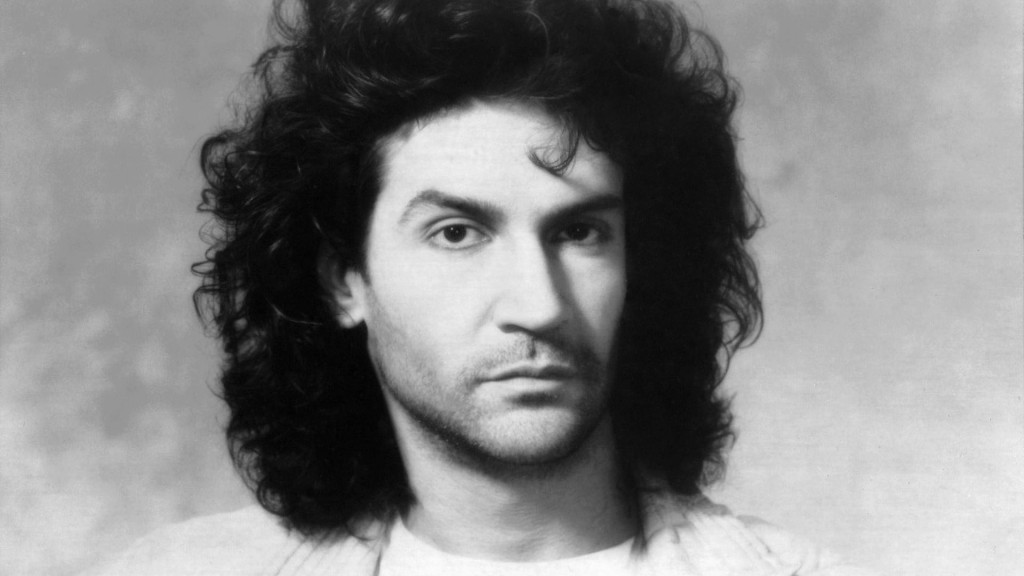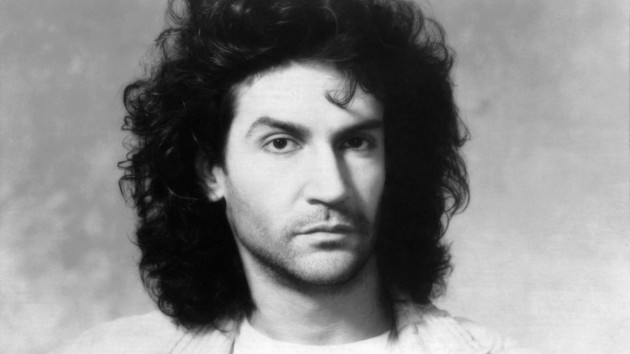
In certain respects, the career of pop rocker Billy Squier can only be viewed as a failure. He was on the rise, he hit a fairly major speed-bump, and the wheels came off in a spectacular way. But judged by today’s standards, Squier was a hugely successful musician, in both commercial and critical terms, and even when he ‘failed’, he was still more successful than many of the current hit parade. Looking back, Squier’s story could have only happened in the 80s, and out of all the strange tales in rock and roll history, his is one of the only ones that comes from being damned by success.
Boston born Squier had been active for over a decade before he hit the big league in 1980. Signed to a nine album deal with Capitol Records, despite having no real track record up to this point, it was a major investment for an unknown artist. His debut, The Tale of the Tape, was a minor hit, establishing Squier as a melodic, Robert Plant-esque vocalist, with one foot in the pop and rock camps, seemingly unafraid of committing to either. Whilst there weren’t any major hit singles on the record, you’ve almost certainly heard part of it, thanks to lead track ‘The Big Beat’ later becoming one of the most sampled tracks in rock history. See that gargantuan drum sound on Jay-Z’s ’99 Problems’? That’s our Billy. Hell, you could stretch things a bit and say that ‘Fix Up, Look Sharp’ by Dizzie Rascal pretty much amounts to a cover of the song.
Don’t Say No followed in 1981, producing his first hit single in ‘The Stroke’, and Emotions in Motion continued his success in 1982, coming adorned in a sleeve designed by none other than Andy Warhol. It would be pushing it to say that Squier was in rock’s A-list, but he’d certainly established himself as a strong and distinctive artist, with a credible pop rock sound. Taken today, his first three albums are very strong, gutsy collections of no-nonsense rock, but tightly focussed in keeping with their post-new wave release. They’re very much a product of their time, but they’re no less impressive for that.
Then something called MTV came along, and everything changed. Suddenly, having a hit record on radio wasn’t enough, with glossy music videos establishing themselves as the new tool for success. Squier had a headstart on most other rock artists, already having produced promo films for his singles since his debut record, and the fact that he was a pouty, sharp-cheekboned pretty boy certainly didn’t hurt. With a sound that was happy to accommodate the mainstream, Squier was perfectly placed to capitalise on this new, image and pop driven medium.
Which is exactly what happened next, and in the most bizarre turn of events, it completely torpedoed Squier’s career.
1984’s Signs of Life became Billy Squier’s biggest hit album, selling over two million copies. A large part of this was down to the runaway success of the record’s main single, ‘Rock me Tonight’. A punchy, moody pop song, it rides along on a synth motif, and is positively dripping in hooks. It’s much more dated sounding than anything from Squier’s first three albums, but it was very much in tune with the era, and became his highest charting single.
Already accustomed to how things now worked, Squier helped storyboard the video for the song, and it premiered on MTV amidst a flurry of hype, billed as one of the most expensive videos made to that point. Directed by choreographer Kenny Ortega, the video had a tortured genesis, having already passed through the hands of several directors, including Bob Giraldi (‘Beat It’) and David Mallet (‘White Wedding’). Squier maintains that his original concept was a gritty portrayal of the ritual of getting ready to go to a rock concert, getting dressed, dancing, and checking one’s hair (we all do this, right?). Ortega’s take was somewhat different, and whilst the storyline ultimately didn’t change, the execution did.
The video starts with Billy awakening in his bed, draped in satin sheets. He slinks out of bed, pulling on some skintight white jeans, and begins dancing around the room, preening himself in the mirror. He tries on several changes of t-shirt, dances some more, and winds up rocking out with the rest of his band. And he dances some more. Honestly, this description doesn’t do it justice, and if we’re lucky, we can link to the video. Let’s just say, it’s hard to imagine it being grim and gritty, as Squier has claimed it was intended to be.
Reaction to the video was incredible, with most sources either reeling in shock, or clutching their sides in laughter. But the song had become a hit, and the more radio play it received, the more frequently it became played on MTV. Suddenly, this image of Squier, clad in white pants and pink vest, writhing upon his satin sheets was everywhere, and rock audiences were up in arms.
The central criticism of Squier was that he looked “gay”, and in the rock world of 1984, this was something that was very hard to forgive. People in the industry, journalists, and fans themselves began to speculate that Squier was homosexual, or – at the very least – off his mind on drugs. Typically, in a world driven by notions of masculinity and machismo, it was far more acceptable for him to be on drugs, than to be gay. Within the industry, the song became known as ‘Cock me Tonight’, and as the controversy mounted, Squier noticed a strange thing taking place. Despite riding high in the mainstream pop charts, the venues he was playing in were becoming increasingly empty.
Rock fans, reluctant to be seen going to a ‘gay’ concert, were staying at home, rather than facing the accusations that would await them for going to a Billy Squier show. And perversely, the more successful the song became, the more Squier was forced to watch his success and credibility slip away.
In the years to follow, Squier tried to bury the video, resolutely maintaining that it hadn’t been his idea, and it hadn’t come out the way he wanted it to, and desperately trying to reassure his fans that he was a red-blooded, straight male. He never really troubled the charts again, releasing albums well into the 90s, before concentrating on live work, and collaborations with other artists. Looking back in a book about the history of MTV, he reminisced that he wasn’t sorry about anything, but that ‘Rock Me Tonight’ had been, “A bad part of a good life.”
Homophobia has long been a part of the music industry, at least in terms of how it views itself. The great irony is that many of the people responsible for making rock and roll the cultural force it’s been for so long have been gay. It’s an interesting point to note that Billy Squier had strong ties to Queen, and Freddie Mercury had encountered his own problem with perception a few years before Squier. When Hot Space was released back in 1982, Queen found themselves on the receiving end of an incredible backlash, particularly in America. Hot Space had been an experiment largely stemming from Mercury’s experiences in gay clubs, and recapturing the music he’d heard there. Famously, Mercury’s retort to the controversy was to exclaim, “It’s only a bloody record!”
And maybe he was right. But for someone like his friend, Billy Squier, it might have been hard to agree, as he was labelled gay, and cast out into the wilderlands, all because of some rather flamboyant dancing. Squier, for his part, seemed well aware of the inherent difficulty of all this, at pains to remind people that, y’know, being gay wasn’t actually a problem, even though he wasn’t. But the damage was done.
In a sense, if one is to look for a happy ending to this story, it would be in the ways that the music business has seemingly reconciled with its homophobia. Misogyny and homophobia haven’t’ gone away by any stretch of the imagination, but these days if anyone is openly misogynistic, rock fans tend to condemn it, and attitudes towards homosexuality have certainly thawed, thanks in no small part to Judas Priest’s Rob Halford. After all, if the Metal God himself is gay, surely we can all be happy with that?
But it hasn’t gone away, and when we look back at the story of Billy Squier, it’s hard not to feel somewhat remorseful. If such a thing happened in the current musical climate, would we stand by a let it happen, sniggering like a bunch of naughty school kids? Or would you stand up and let yourself be counted? Either way, Squier seems reconciled with his past now, and the fact that hip hop artists seem to be queuing up to give him royalties, can’t help. But if you’re a musician, and you dream of nailing that hit record which will make you a star, spare a thought for Billy Squier, and remember that success ain’t all it’s cracked up to be. Steven Rainey





